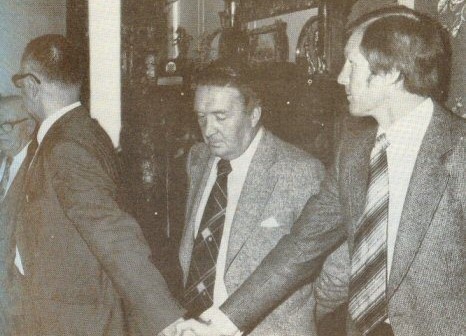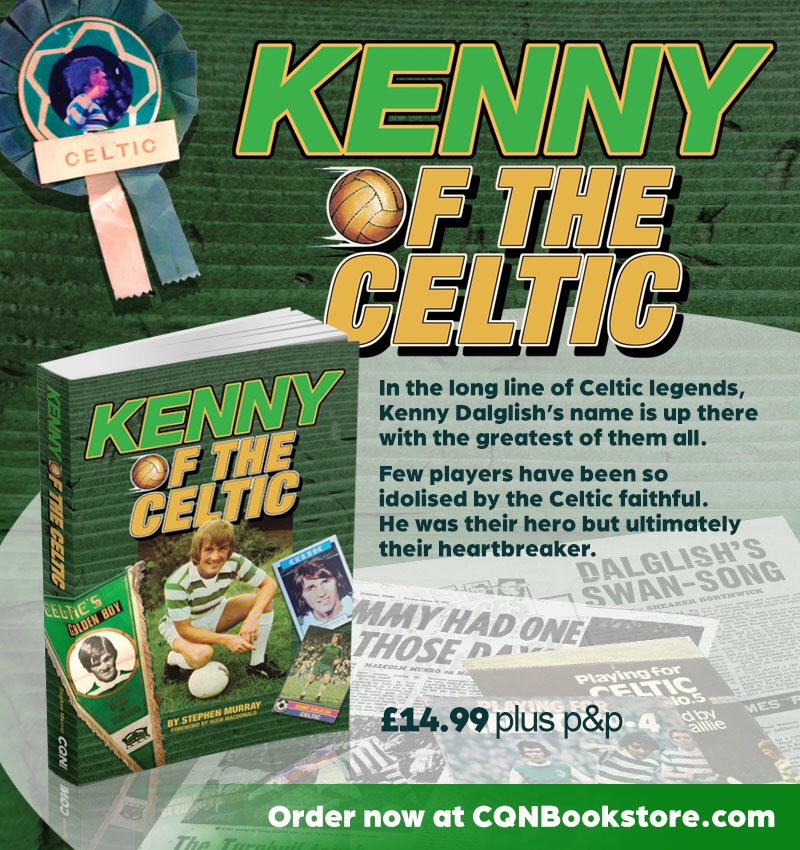As he prepared for the 1977/78 campaign, Jock knew he had two world class performers in Danny McGrain and Kenny Dalglish. Pat Stanton’s arrival from Hibs in a straight swap for Jackie McNamara was a steadying influence on the relatively inexperienced Roddie MacDonald in the heart of the defence.
Ronnie Glavin was scoring goals from midfield and Joe Craig, a different type of player to Joe McBride, Willie Wallace or Dixie Deans, was a powerful attack-leader.
There was the artistry of the flamboyant Alfie Conn while teenager Roy Aitken was an emerging talent, in defence and midfield. Another youngster named Tommy Burns had been introduced in selected games during the previous season and had looked the part with a sweet left foot.
All that, and Peter Latchford was earning a reputation of being dependable between the sticks. Indeed, Stein was preparing to turn back the clock to the mid-sixties and launch a new Celtic on the world of football.
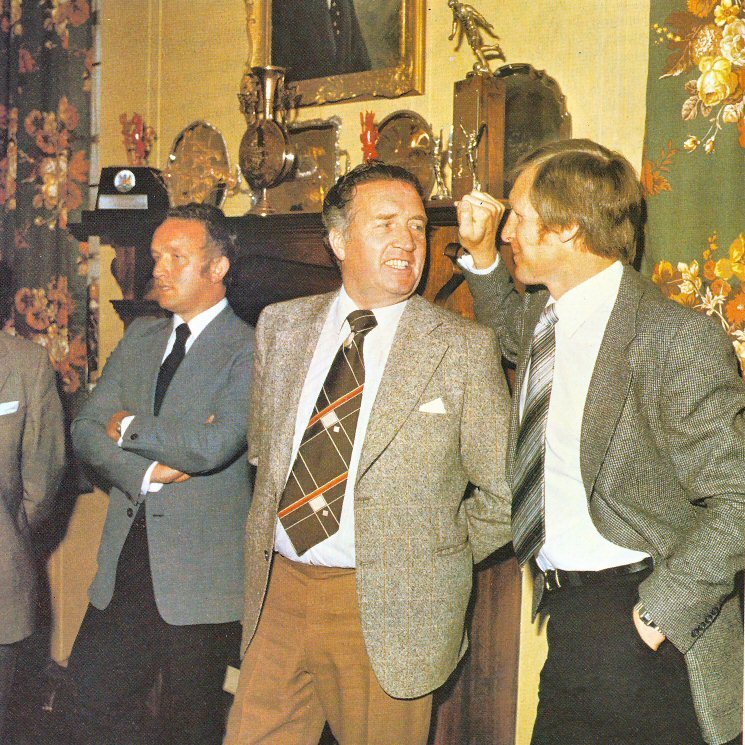
It didn’t take long for the expectation levels to be fragmented. The season hadn’t even kicked off when the first setback arrived. Liverpool, looking for a replacement for Kevin Keegan, bound for the Bundesliga in a £500,000 move to SV Hamburg, turned their focus to Dalglish.
Celtic spent £60,000 of the transfer cash on Dundee United striker Tom McAdam, who would eventually do his best work for the club at centre-half, and £25,000 on unknown Fulham midfielder John Dowie, a one-time reject from Rangers.
Presumably, the balance of £355,000 was placed in a high-interest account that Celtic could unlock some time in the Twenty-First Century.
The warning signs were flashing. Stanton was seriously hurt in the opening goalless draw against Dundee United. News filtered through that the injury to Stanton was so severe there was no hope of a comeback that season. In fact, his playing career was over.
After a mere ninety minutes, it was already the start of the disintegration of a season. A week later Ayr United beat Celtic 2-1 at Somerset Park and, following that, Motherwell left Parkhead with a 1-0 victory.
Johannes Edvaldsson gave Celtic a two-goal advantage at Ibrox, but Rangers came back to win 3-2. Dowie made his debut in that encounter and produced the sort of performance that stripped away any notion that Rangers might have made an error of judgement when they let him go for nothing.
A lanky 6ft 6in centre-half called Iain McWilliams, from Queen’s Park, was drafted in beside MacDonald. It became the double-act from hell. The cloud-scraping pair were unbeatable in the air, but, unfortunately, couldn’t pass the ball six yards on the ground to anyone wearing the same colour of jersey.
Celtic were using sticking plasters when major surgery was required. Aberdeen won 2-1 at Pittodrie to make it four losses and one draw from the first five league games.
Celtic struggled to overcome Clydebank 1-0 and worse was to follow. McGrain, after only seven league games, damaged an ankle so severely in a 2-1 win over Hibs that his season was over, too; his very career threatened. Dalglish transferred, Stanton finished and McGrain sidelined.
All it required to complete a bleak picture would have been a sudden outbreak of bubonic plague in the vicinity of Kerrydale Street. The team was falling apart. Remarkably, it still managed to reach the League Cup Final where Rangers were lying in wait at Hampden in October.
Davie Cooper thumped one past Peter Latchford, but Celtic gamely battled throughout and Edvaldsson out jumped Stewart Kennedy to head in a late leveller to force extra-time.
Fortune continued to ignore Celtic. Latchford mishandled a high ball, patted it straight onto the head of Gordon Smith and he nodded it into the net. Celtic couldn’t come back a second time. Not this Celtic team, anyway.
After beating Luxembourg’s Jeunesse D’Esch 11-1 on aggregate in the European Cup first round, Celtic surrendered meekly to Austria’s SSW Innsbruck at the next hurdle. Conn and Craig scored in a 2-1 win in Glasgow, but the team, with another uninspiring new face in Jim Casey playing, flopped 3-0 in the second leg. Worse was to follow in the Scottish Cup. 
George McCluskey, skilful and clever, netted a hat-trick in a 7-1 demolition of Dundee in the first round, but some unwanted history was around the corner. Celtic toiled to a 1-1 draw against First Division Kilmarnock in the next stage at Parkhead. An out-of-sorts team relied on a goal from MacDonald to force a replay at Rugby Park.
Roy Aitken was sent off in a night to forget when Celtic were humbled 1-0 for the first time in the national tournament by opponents from a lower division. A miserable campaign, that had looked so promising in the summer, ended with a dismal 3-1 defeat against St.Mirren at Love Street.
Celtic finished fifth in the table on thirty-six points – nineteen fewer than the previous campaign – with Rangers regaining the championship on fifty-five. Aberdeen (53), Dundee United (40) and Hibs (37) all out-performed a poor Celtic team.
Giants such as Billy McNeill, Tommy Gemmell, Bobby Murdoch, Jimmy Johnstone, Bertie Auld, Davie Hay and Kenny Dalglish had been replaced by the likes of Ian McWilliams, Roy Kay, Jim Casey, Johnny Gibson, Peter Mackie, John Dowie and Jimmy Bone. The shift in quality was staggering; the downward spiral frightening.
Older Celtic followers must have winced as they witnessed what looked like a restaging of the early sixties with their club being sucked into a vortex of mediocrity and misery.
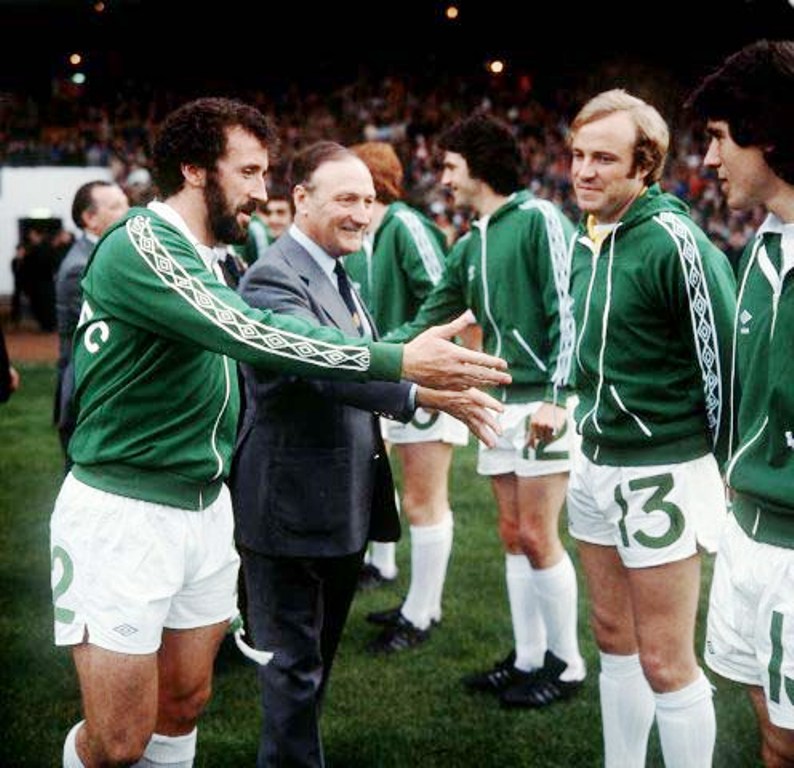
Unthinkable only a handful of years previously, it was now time for a change of manager. The whole sorry episode that came next was, indeed, a black one in the history of a proud football club.
Jock Stein discovered he was expendable. Frankly, though, the board were in a quandary about how to deal with the removal of their popular manager. After a month of negotiations, two things emerged – a post for Stein would be found on the board and Davie McParland, his assistant manager, would not be offered the job as his successor.
The board turned to Stein for his thoughts. Without hesitation, he nominated Billy McNeill. The former captain was seen as Celtic manager material by his mentor who, as well as shaping his playing career, had had an enormous influence in his first steps into management, possibly without McNeill’s full knowledge.
McNeill, after quitting the game following the Scottish Cup Final success over Airdrie in 1975, had tired of working on his own business interests and was persuaded to become manager of Clyde on April 1 1977.
A mere six weeks later, Stein received a telephone call from Dick Donald, the Aberdeen chairman. He was looking for a successor to Ally MacLeod who had agreed to take over as manager of the Scotland international side.
Stein nominated McNeill. Within hours, the Pittodrie supremo, with Stein’s assistance, had made contact with McNeill and, only a few days later, the contract was signed, sealed and delivered.
McNeill made an immediate impact on Aberdeen. In his only season, he took the club to runners-up position in the league, on fifty-three points, two adrift of Rangers and seventeen ahead of Celtic.
They also reached the Scottish Cup Final where they were beaten 2-1 by the Ibrox side. No silverware in the Pittodrie trophy cabinet, but Stein was impressed.
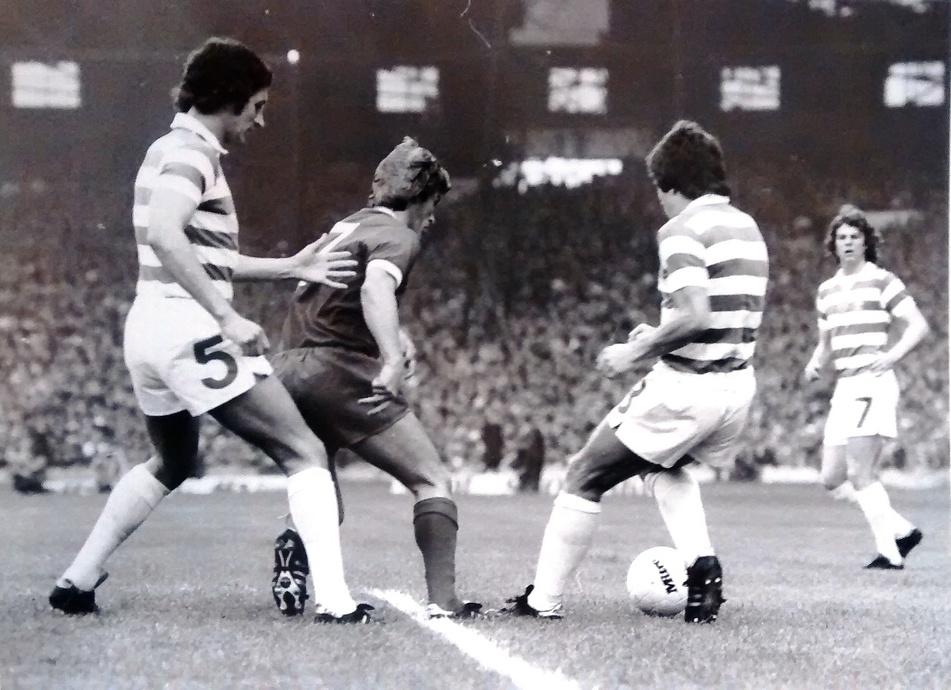
After advising the board to waste no time in moving for McNeill, they, in turn, left it to Stein to make contact. McNeill recalled, ‘I was at Scottish Football Writers’ Player of the Year dinner at the Macdonald Hotel in Newton Mearns.
‘Actually, I was picking up the Manager of the Year award, so Big Jock knew I would definitely be in Glasgow that evening. Jock took me aside at one stage and said he wanted to have a word in private.
‘He told me he would drive his Mercedes to a quiet spot just down the road and I was to meet him there in a few minutes. I was more than a little intrigued. I got into my car, drove to the nominated place and jumped into Jock’s car.
‘He smiled and said, “I think it’s time you came back to Celtic Park.” Just like that. There was no preamble. Before I could ask in which capacity, he quickly added, “Would you take the manager’s job?” I was a little stunned by the offer and I listened to him as he laid out the reasons why he thought me and Celtic were made for each other. As ever, he was very persuasive.’
McNeill has a remarkable confession to make. ‘I’ll tell you this, if the Celtic board had approached me to take the job instead of Jock I would have rejected it. I wouldn’t have gone back.
‘My wife Liz and I were extremely happy with our new environment in Aberdeen. We had a lovely home in Stonehaven, we had made new friends, the board were great to work with, especially Dick Donald,
‘I had good players and we were getting good results. It was the perfect setting. But I couldn’t bring myself to say no to Big Jock. I just couldn’t face turning him down. He had been such a huge influence in my life as well as my career.
‘If it hadn’t been for Jock I would never have returned to Celtic.’
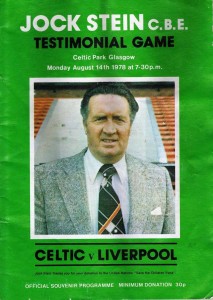
On April 20, 1978, Celtic held another meeting at the North British Hotel in Glasgow. A section of the minutes of the get-together make interesting reading.
‘In the view of Mr.Stein’s long and valued service with the club, it was agreed that at the time a new manager was appointed, Mr.Stein be offered an executive directorship with the club as recognition and compensation by the club for these services. Mr.Stein indicated that he would be very pleased to accept such a directorship.’
On the surface, it appeared to be a seamless changeover. Stein admitted, ‘I am more than pleased to be going on the board at Parkhead.’
A week or so later, the picture changed dramatically when it was revealed exactly what his role would entail while overseeing a new commercial enterprise at the club.
He could hardly comprehend what the board were proposing. Stein, the manager who won twenty-five trophies at Celtic including making them the best team in Europe in 1967, was being asked to take over an area dealing with a new lottery venture.
Stein told friends, ‘You’ll never believe what they want me to do – they want me to sell pools tickets!’
A proud man, Stein never did agree to that ‘offer’.
*Extract from Celtic The Awakening, by Alex Gordon.

